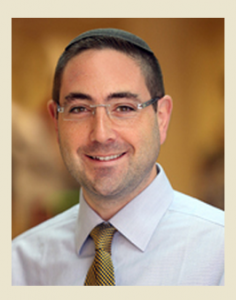
By Rabbi Ari Enkin, Rabbinic Director, United with Israel
This week, the Torah teaches us that the word “youth” in the Jewish lexicon is synonymous with “important ones.”
Once upon a time—yes, it’s a true story!—King Ptolemy wanted the Torah translated into Greek. But he wanted to make sure he was getting an accurate translation, and that no one was pulling the “wool over his eyes” as to what the Torah really says. As such, he took 72 rabbis and placed them in 72 different rooms. He then told them to translate the Torah from Hebrew to Greek. Each one was given their writing materials, and then they were off to work. No communication between the rabbis was allowed or even possible.
King Ptolemy’s instructions notwithstanding, there are some things that for a variety of different reasons simply could not be accurately translated. To that end, a miracle occurred and each of the rabbis translated the Torah in the exact same manner, even though the translation wasn’t always exact.
One of their “translation modification miracles” was right here in this week’s Torah portion (Mishpatim, which means “laws”; Exodus 21:1 – 24:18). The verse says, “And Moses sent forth the youth [naarei] of the children of Israel.” (Exodus 24:5) Instead of translating the verse literally, the rabbis translated it as, “And Moses sent forth the important ones [zatutei] of the children of Israel.”
The rabbis “mistranslated” this verse because they were worried that the Greeks would criticize the Torah for sending children to offer sacrifices to God. To them this would have been abusive or even idolatrous at best. Therefore, they translated the verse in a way that takes the focus away from children having been sent to offer sacrifices.
But here’s the question: Did the sages truly mistranslate the word? The answer is: No. The translation is accurate! How so?
It is explained that the youth are indeed the “important ones” among the Jewish people! This is because the future of the Jewish people rests upon the youth. The youth are our future. The word “youth” in the Jewish lexicon is (or should be at least) synonymous with “important ones.” With this, the Greeks would not be able to criticize the Torah.
This is consistent with what Moses told Pharaoh after Pharaoh said that he would “let the elders go.” Moses responded—without missing a beat—“No, we will go with our youth and our elders.” And that was it.
You see, Pharaoh was a genius. He knew that if he freed only the Jewish seniors, Judaism would face no chance of survival. What a smart way to destroy Judaism and the Jewish people under the guise of freedom and being a nice guy. He wanted to keep the younger generation with him in Egypt where he could indoctrinate them and sever their ties with the Jewish people. Moses, as you know, didn’t go for the deal.
Yes, the senior generation is important and we must respect them. There is much we can learn from them, and in fact, it is they who pass down the ancient tradition. But the bottom line is that the future lies with our children. Even Pharaoh and the wicked King Ptolemy knew that
